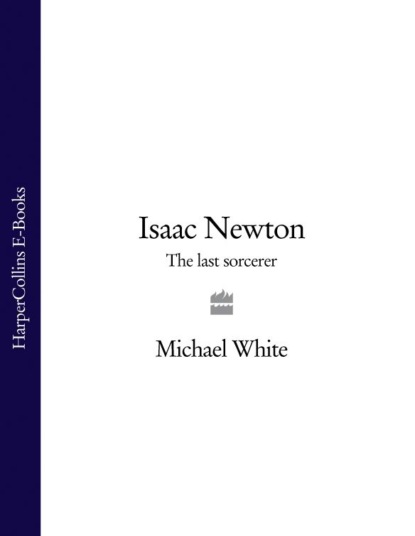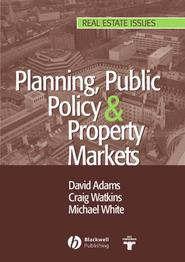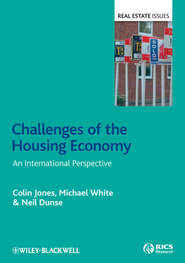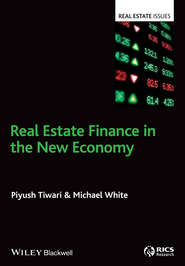По всем вопросам обращайтесь на: info@litportal.ru
(©) 2003-2024.
✖
Isaac Newton: The Last Sorcerer
Настройки чтения
Размер шрифта
Высота строк
Поля
What has been unearthed does not always paint a pretty picture. The reality of human character rarely does. However, the newly revealed Newton, the broader-canvas Newton, is a human Newton – a man whom we should be proud to accept for his peculiarities and failings as we are for his unique skills and talents. As Sir Christopher Wren, his contemporary, put it, ‘Neither need we fear to diminish a miracle by explaining it.’
(#litres_trial_promo)
What has been gradually revealed is the image of a genius who sought knowledge in everything he came across, a man who was driven to investigate all facets of life he encountered, everything that puzzled him. Such voraciousness drove him to self-inflicted injury, nervous breakdown, to a state in which he almost lost his mind, and possibly even to occult practices and the black arts. But the work that emerged from these explorations changed the world.
The other major question provoked by the Keynes papers – whether or not there was cross-fertilisation between Newton’s alchemical studies and his scientific researches – was a much more difficult problem to address and remains a question that is far from being resolved completely.
Not least of the problems facing any serious research into what Newton was doing is the fact that he left behind over a million words on the subject of alchemy. Beyond that has lain the problem of deciphering such a mass of material written largely in code, in Latin and in Newton’s tiny handwriting. The task has occupied scholars for sixty years and is ongoing. The late American scholar Betty Jo Dobbs produced a vast body of work providing a detailed analysis of Newton’s alchemical experiments gathered together in two academic works, The Foundations of Newton’s Alchemy (1975) and TheJanus Faces of Genius: The Role of Alchemy in Newton’s Thought (1991). Others have begun to analyse Newton’s vast collection of writings on biblical prophecy and his ideas on a range of subjects from astrology to numerology.
(#litres_trial_promo) But for the lay reader there remains the added difficulty of understanding the mental processes behind seventeenth-century alchemy. It is not easy to empathise with a mentality that is, on so many levels, quite alien to the late-twentieth-century mind.
In the following pages I will discuss both sides of the argument, for and against alchemical influence upon Newton’s scientific work. But, based upon the evidence available, my conclusion is unequivocal: the influence of Newton’s researches in alchemy was the key to his world-changing discoveries in science. His alchemical work and his science were inextricably linked.
Newton himself said, ‘A man may imagine things that are false, but he can only understand things that are true.’
(#litres_trial_promo) The no man’s land between imagining and understanding is, at times, the natural home of the biographer; but by demythologising truths that have long been veiled in secrecy this no man’s land becomes narrower. Newton the towering intellect, the pioneer and father of modern science, can now stand alongside Newton the mystic, the emotionally desiccated obsessive and the self-proclaimed, but deluded, discoverer of the philosophers’ stone – divested but undiminished.
Chapter 1 Desertion (#ulink_1fd1007b-e430-5294-9156-c8a43b229c84)
Nature, and Nature’s Laws lay hide in Night.God said, Let Newton be! and All was Light.
ALEXANDER POPE
(#litres_trial_promo)
In the days before the English Civil War, Woolsthorpe was a peaceful Lincolnshire village, and even when, for a time, the world seemed turned upside down by internecine struggle the village survived the traumas almost unscathed. A few hundred yards beyond the village, up on the Great North Road (today the A1), the soldiers of the King and those of Parliament clanked their way towards cannon blast and bloody death during the bleak winter of 1642–3; but few men from the village became embroiled in the fighting, and the nearest battles were several miles away.
Woolsthorpe (or Wulsthorpe as it was once known) is an ancient settlement, nestled in a hollow on the west side of the river Witham, about seven miles from the nearest sizeable town, Grantham. Newton’s first biographer, William Stukeley, described the village as having a good prospect eastwards, with a view of the Roman road and the Hermen-Street going over the fields to the east of Colsterworth: ‘There can be no finer country than this,’ he declared.
(#litres_trial_promo)
During the seventeenth century, Woolsthorpe was little more than a collection of small farms and humble country dwellings clustered around the manor house. The area offered poor opportunities as arable land and would sustain only a two-field rotation, which meant that fields were left fallow half the time, so the locals eked out a frugal existence largely from sheep farming.
The Newtons, of which there were many scattered around the Grantham region, had for several generations before Isaac’s birth been viewed as being one cut above the local populace, existing on the social cusp between yeomen and lower gentry.
(#litres_trial_promo) This was all thanks to Isaac’s great-great-grandfather, one John Newton, of the nearby village of Westby, who, according to community records and evidence pieced together from wills and tax demands, managed miraculously to ascend the social order from peasant to yeoman during his lifetime.
(#litres_trial_promo) In fact John Newton of Westby did so well that he was able to leave substantial inheritances and dowries for his children – including, for his son Richard, sixty acres of some of the best land of the area, situated in the village of Woolsthorpe, bought shortly before the old man’s death in 1562.
John Newton’s descendants were neither so aspiring nor so successful. Although the impetus he had provided placed them in good stead, none of them until Isaac made much of an impression in any area of life or improved their social standing to the same degree. The Newton men married relatively well between John and Isaac Newton senior (Isaac’s father) – a period of perhaps a century. Although this nudged them slowly upward through the grades of yeoman, none of them was educated formally and it is a startling fact that Isaac Newton senior (like many of his class) could not sign his own name. Yet his son became President of the Royal Society and Lucasian Professor at Cambridge University. Perhaps because of this confused social position of his family and ancestors, class and standing always meant a great deal to Newton.
Isaac’s great-grandfather, Richard Newton, bequeathed the sixty acres in Woolsthorpe to his son Robert, who was born around 1570, and it was he who purchased the manor house standing nearby. According to local records, the property had changed hands by sale four times in the preceding century and was in a dilapidated state when it was acquired by the Newtons. Basic repairs were carried out within a few years, and it became the family home for this, perhaps the most prosperous, branch of the local Newton family.
(#litres_trial_promo)
It was with the next generation that the Newtons gained a further modicum of social elevation and a smattering of academic credibility, when Isaac senior, Robert’s son, married into the Ayscough family – respected local lower gentry who sent their sons to Oxford and Cambridge universities and whose family members found their way into parsonages and lectureships. When the illiterate but propertied Isaac Newton senior married Hannah Ayscough, whose family had fallen upon hard times and were in danger of sliding down the social scale, it was a match of convenience as much as an auspicious melting of genes and environment: a cocktail to change the world. Thanks to his aspiring forebear John Newton, Isaac had money – in December 1639 Robert Newton had settled the entire Woolsthorpe estate on him. Hannah had breeding. Both families were therefore satisfied, and in April 1642 the couple were married. Hannah took the name Ayscough-Newton.
The winter of that year was bleak both for the Newtons and for the country as a whole – England had slid into a savage civil war. By the time Hannah and Isaac were married, King Charles I had left London, never to return as England’s acknowledged sovereign, and had headed north. His queen, Henrietta Maria, adored by her doting husband but loathed by many of his subjects, had been sent to Europe for her own safety. During the summer and autumn of 1642, what had begun as petty skirmishes and political and religious wrangling developed into full-scale civil war, with the royalists camped first at York and then at Oxford. The battle of Edgehill, one of the most famous of the war, had been fought at the end of October and had gone the royalists’ way; the country was gripped by battle fever. Within the space of a few years, England had been transformed from a nation at peace, existing beyond the turmoil of the Thirty Years War which had ravaged mainland Europe since 1618, into a nation in which brother had taken up arms against brother and lifelong friendships had been shattered by the taking of sides in the dispute – for the King or for Parliament.
Most biographers of Newton, from Stukeley to recent times, have assumed that the Newtons had royalist leanings. They have based this opinion upon the family’s class and social aspirations, reasoning that, as upwardly mobile lower gentry, they would favour the status quo and disapprove of attacks upon the traditional monarchical system. This may have been so, but the sides in the Civil War were not defined clearly along class lines. There were many noblemen who fought on the side of Parliament, and many of the lower orders supported the King. Furthermore, the many complex reasons for the dispute included not only political preoccupations but religious issues, which for some would have been more important. For many historians, the Civil War had its foundations in the decisions of Henry VIII and his immediate descendants and was as much to do with the ideological clash between Rome and the Church of England as with the position and powers of Parliament. The Newton family would not have shared Charles’s sympathy towards Catholicism, and indeed in later life Isaac was positively anti-Catholic.
The political views of the Newtons during the Civil War were not recorded. The fact that Hannah’s brother, William Ayscough, maintained his position as rector in the nearby village of Burton Coggles during and after the war neither confirms nor refutes the Ayscoughs’ Cavalier sympathies: it merely shows that he, like many others, including perhaps the Newtons, bent with the wind.
For all the turmoil the Civil War wrought on the people of England, at the time Hannah Newton was far more concerned with immediate problems caused by a domestic tragedy a few days before the battle of Edgehill: her husband, Isaac, had died leaving her heavily pregnant. What caused his death is unclear. He had just turned thirty-six and appears to have been ill for some time beforehand. We know this because of the introduction to his will, which reads, ‘In the name of God amen the first day of October (anno Dom 1642) I Isaac Newton of Woolsthorpe in the parish of Colsterworth in the county of Lincoln yeoman sick of body but of good and perfect memory …’
(#litres_trial_promo)
Very little is known of Isaac senior. Misinterpretations have been made of his character based largely on the research of the eighteenth-century writer Thomas Maude, who claimed that Hannah’s husband was a wastrel.
(#litres_trial_promo) Maude had actually confused him with a relative, another John Newton, and it seems from the contents of the will that Isaac had actually managed well his newly acquired estate and had taken seriously his responsibilities before marrying Hannah. He was illiterate, but seventeenth-century farmers had little real need for learning, and he left the estate pretty much as he inherited it; Hannah and her child were well provided for.
During those miserable days between the death of her husband and the birth of their child, we can only assume that Hannah did her best to maintain the farm and to prepare herself for the coming event. She went into labour late on Christmas Eve and almost certainly gave birth in the room in which the child was conceived – the bedroom to the left of the top of the stairs. Hannah’s mother, Margery, travelled from the nearby village of Market Overton to supervise the birth, and two women from Woolsthorpe were paid a few pennies to help. Sometime soon after 2 a.m. on Christmas morning a son – Isaac – was born.
By Newton’s own account, offered late in life, he was born premature. This may have been true, but he was fond of mythologising his childhood and, for complex reasons, he encouraged the idea that there had been something miraculous about his birth. Also, Newton quite naturally did everything he could to pre-empt any rumours that he may have been born illegitimate. The records do not give an exact date for the marriage of Isaac and Hannah, but an unkind analysis, ignoring the declared prematurity, would conclude that Newton was conceived out of wedlock. Most revealing is the fact that when, at the time of his knighthood in 1705, Newton was asked to draft a genealogy for the College of Heralds, he pushed back the date of his parents’ marriage to 1639 (the year in which his grandfather acquired the manor house).
(#litres_trial_promo) This could have been a genuine mistake, but Newton’s deep-rooted need for secrecy, impeccable social credentials and high-caste moral attitudes (along with the convenience of the changed date) mean that the real reason may not be so accidental.
According to John Conduitt, husband of Newton’s half-niece Catherine Barton and a collector of personal anecdotes about his famous relative, Isaac was a tiny baby who, so the legend goes, was small enough to fit into a quart pot. ‘Sir I. N. told me’, Conduitt recalled, ‘that he had been told that when he was born he was so little they could put him into a quart pot & so weakly that he was forced to have a bolster all around his neck to keep it on his shoulders.’ It is an appealing story, and one supported by others that Newton passed on to Conduitt. In an elaboration of the story, the two women attending Hannah at the time of Newton’s birth were sent to the home of one Lady Pakenham to obtain medicines. Apparently, Newton was so frail that on their way back to the manor the two women ‘sat down on a stile sure the child would be dead before they could get back’.
(#litres_trial_promo)
Such tales have become part of the legend of Newton’s life, supported by the testimony of many of the villagers whom Stukeley interviewed during the late 1720s for his biography of Newton. Unlike many interpretations of Newton’s later exploits, they are at least plausible. But it is typical of the adulatory style of Newton’s early biographers that so much is made of the miraculous nature of his early survival. A description of Newton’s infancy from Sir David Brewster, writing in 1855, serves to illustrate:
Providence, however, disappointed their fears, and that frail tenement which seemed scarcely able to imprison its immortal mind, was destined to enjoy a vigorous maturity, and to survive even the average term of human existence.
(#litres_trial_promo)
Newton would have strongly approved of such a description, which adds still more weight to the self-image he so much treasured.
Of the first three years of Newton’s life almost nothing is recorded. We know from a tiny scrap of parchment unearthed by Stukeley that the baby Isaac was baptised on 1 January 1643. It is easy to conjure up a romantic image of Hannah on New Year’s Day trudging through the snow with her feeble baby wrapped in swaddling-clothes on their way to the local church for the christening ceremony, but it is almost certain that the village vicar would have visited the manor to conduct the service.
After this there is a three-year period of blankness. As the Civil War raged the length and breadth of the country, Hannah and her son continued to live at the manor house. Their employees tilled the land and carried out the annual lambing, the shearing, the milking and the feeding, while Hannah dealt with the many bureaucratic aspects of the business and supervised sales of animals and the maintenance of farm stocks. It would also have been natural for Hannah’s parents to play a significant role in helping their widowed daughter. Hannah and her son were not rich, but they were comfortably off. At the time of Isaac senior’s death, the deeds of the manor house and the surrounding lands, along with goods and chattels valued at £459.12s. 4d., 234 sheep, 46 head of cattle and several barns full of oats, barley and malt were all bequeathed to Hannah. To put this into perspective, the average farmer of the region owned a flock of between 35 and 40 sheep, and the will of a typical yeoman contained goods worth little more than £100. During the 1640s, a workman could expect to earn in the region of one shilling and sixpence a week.
By the winter of 1645 King Charles was holed up in Oxford, effectively under siege by Cromwell’s army. In June of that disastrous year for the royalists, his troops suffered their worst military defeat at the battle of Naseby. England was still far from regicide, but the forces that, four years later, would lead to this singular event were already coalescing. Lincolnshire continued to pass through the upheaval relatively unscathed, making Woolsthorpe a haven of solitude and anonymity for advancing or retreating armies. Throughout the Civil War, troops were away from their garrisons for months at a time and relied upon the hospitality of town and country folk alike; stories of villages and towns refusing to accommodate troops of either side are rare. Isaac would have seen soldiers of both sides passing through the village, and there may have been occasions when troops stayed in the houses beyond the fields of his little sanctuary, or even at the manor itself. If Hannah accommodated royalists or Roundheads, no record has been passed on to us, and Newton never mentioned such a thing, but it would not have been surprising.
The worst of the fighting was over by the summer of 1646, but for Isaac a far more significant event had transformed his life. At the beginning of the year, soon after his third birthday, his mother had decided to remarry.
Barnabas Smith was the rector of North Witham, a hamlet just over a mile from Woolsthorpe. Little is known about him, but what is known does not paint a pretty picture. He was successful academically but seems to have displayed only a passing interest in learning. The son of a wealthy landowner, he attended Lincoln College, Oxford, where he graduated in 1601. He collected books, but by all accounts did not often read them; he made a half-hearted effort to start a notebook in which he intended collecting his thoughts on a variety of theological subjects, but gave up after a few pages. Both the books and the notebook did eventually find serious use, however, as they were passed on to Isaac as part of his inheritance upon Smith’s death. The books – some 250 of them – may have led Newton into serious collecting himself and could well have introduced him to a number of the theological subjects which later preoccupied him to and beyond the point of obsession. Nor was the notebook wasted: the mostly blank pages ended up covered in Isaac’s earliest scribblings on the subject of gravitation and the formulation of the calculus. With a barely disguised dig at his stepfather, Newton never referred to Smith’s hand-me-down as a notebook, but, doubtless knowing its history, called it the ‘Waste Book’.
Smith was sixty-three years old when the widowed Hannah Newton first caught his eye. Hannah was around thirty. (There are no surviving official records giving her exact date of birth.) By then he had been rector at North Witham for over thirty-five years, the rectorship having been bought for him by his father in 1610 as the source of a convenient annuity. According to a visiting bishop who had come to check up on the new rector twelve months after his arrival in North Witham, Smith was a non-resident and, presumably on good behaviour, but ‘inhospitable’.
For Smith the rectorship was little more than a dalliance. By the time of his proposal to Hannah in 1645 he commanded an independent income of over £500 per annum – a considerable sum in the seventeenth century, to which his clergyman’s stipend would have added little. Perhaps he had no need to be ‘hospitable’. During his rectorship, he certainly appears to have sailed calmly through the upheavals in Church doctrine created by the Civil War. Between the start of the first Civil War and the end of the second, many Anglican clergymen chose banishment from their living over conformity to the constantly changing tide of theological fashion. Smith, however, went with the flow.
Smith’s first wife had died only six months earlier, in June 1645, and it may have been for this reason that his initial approach to Hannah was businesslike even for the time. Instead of attempting to woo or even talk to her face to face, he paid a servant a day’s wages to deliver a letter of proposal.
Whatever Smith’s reasons for making such a decidedly unromantic proposal, Hannah did not at first reply. Instead, she consulted with her brother, William – who, as incumbent in a nearby village, must have known Smith – and a family conclave was convened to weigh up the pros and cons of the match.
The terms and conditions of the proposed arrangement were negotiated as a business transaction, and the eventual agreement seems equitable, but little thought appears to have been spared for the pawn in this game – Hannah’s three-year-old son. The deal was that Hannah and Smith would marry and she would naturally move to North Witham, but Isaac would stay at the Newton home. In return, some land to the value of £50 was to be signed over for him to inherit at the age of twenty-one, and the house in Woolsthorpe was to be refurbished completely.









